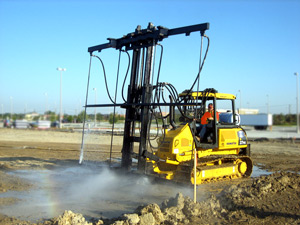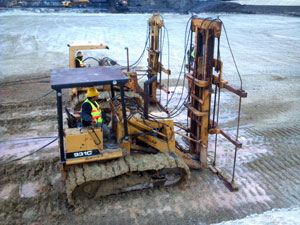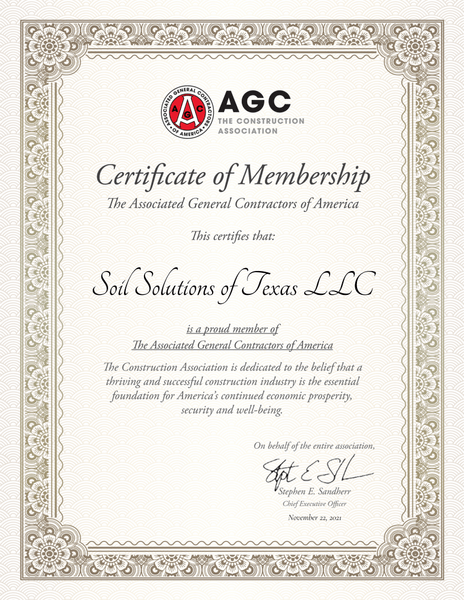The history and development of clay stabilization using potassium-based chemical injection.
 In 1963, after years of research, a major Colorado mining and oil exploration company developed the first potassium-based solution to address problematic clay soils. Their chemists and engineers were given the task of creating a solution that would separate uranium ore embedded in montmorillonite clay formations. Their research and development proved successful and production of uranium ore in eastern Colorado dramatically increased
In 1963, after years of research, a major Colorado mining and oil exploration company developed the first potassium-based solution to address problematic clay soils. Their chemists and engineers were given the task of creating a solution that would separate uranium ore embedded in montmorillonite clay formations. Their research and development proved successful and production of uranium ore in eastern Colorado dramatically increased
In 1972, Mr. Bill Epperson, a production consultant to the mining company, noticed the clay tailings had undergone a dramatic physical change, after being treated with the potassium solution. They had a more sand like appearance.
Mr. Epperson recognized the potential of this solution for use in the construction industry, acquired the rights to it and formed Soil Technology Corporation of Colorado, to produce and market the solution as an alternative to removal and replacement of expansive clay subgrades.
From 1978 through 1983, The Colorado School of Mines Research Institute in Golden, Colorado analyzed and tested the potassium solution, using x-ray diffraction, one dimensional consolidation and cation exchange capacity test. The Institute concluded that this potassium-based solution dramatically and permanently decreased the swell in montmorillonite clays found throughout the country.
In 1983, Jack Karam of San Antonio, Texas acquired the exclusive rights to the potassium-based solution, for the state of Texas. He formed Soil Technology of Texas (now Soil Solutions) and began introducing the process of in situ chemical injection to engineers and general contractors throughout the state. He enjoyed great success having successfully stabilized millions of square feet of expansive clay subgrades. It should be noted that Bill Mellow, Ph.D., P.E. of Southwest Research San Antonio did extensive research on the original formula and made crucial quantity modifications that improved its cost and efficiency .
 Hayward Baker (HBI), one of the largest and most respected ground modification companies in the world, acquired the potassium-based formula from Mr. Karam and had additional research done by Marshall B. Addison, Ph.D., P.E. at the Construction Research Center of The University of Texas – Arlington. Mr. Addison’s extensive research and thesis is available through The University of Texas –Arlington Construction Research Center for anyone interested in the technical aspects of his work.
Hayward Baker (HBI), one of the largest and most respected ground modification companies in the world, acquired the potassium-based formula from Mr. Karam and had additional research done by Marshall B. Addison, Ph.D., P.E. at the Construction Research Center of The University of Texas – Arlington. Mr. Addison’s extensive research and thesis is available through The University of Texas –Arlington Construction Research Center for anyone interested in the technical aspects of his work.
Conclusion: Injection stabilization of expansive clay subgrades, using the aforementioned Potassium-based solutions, is the most researched and tested formula in the industry.



